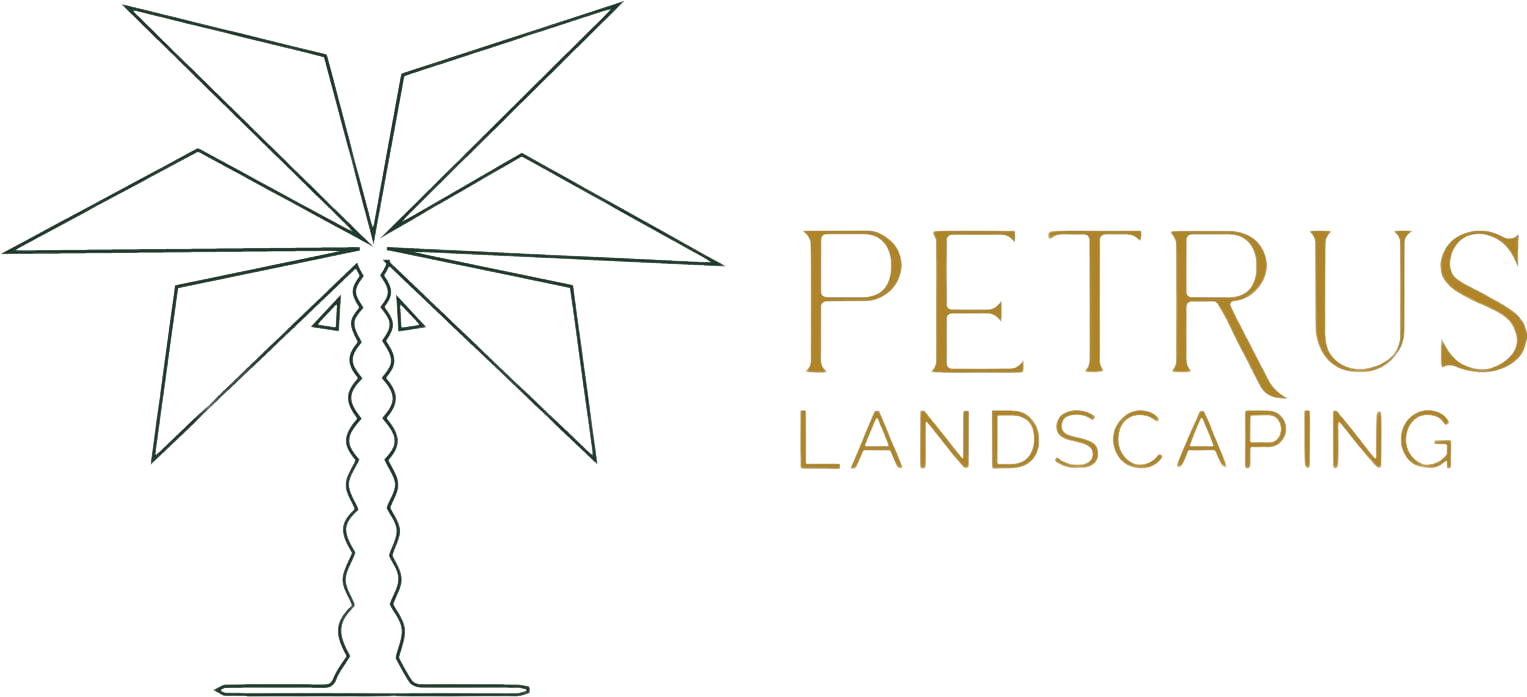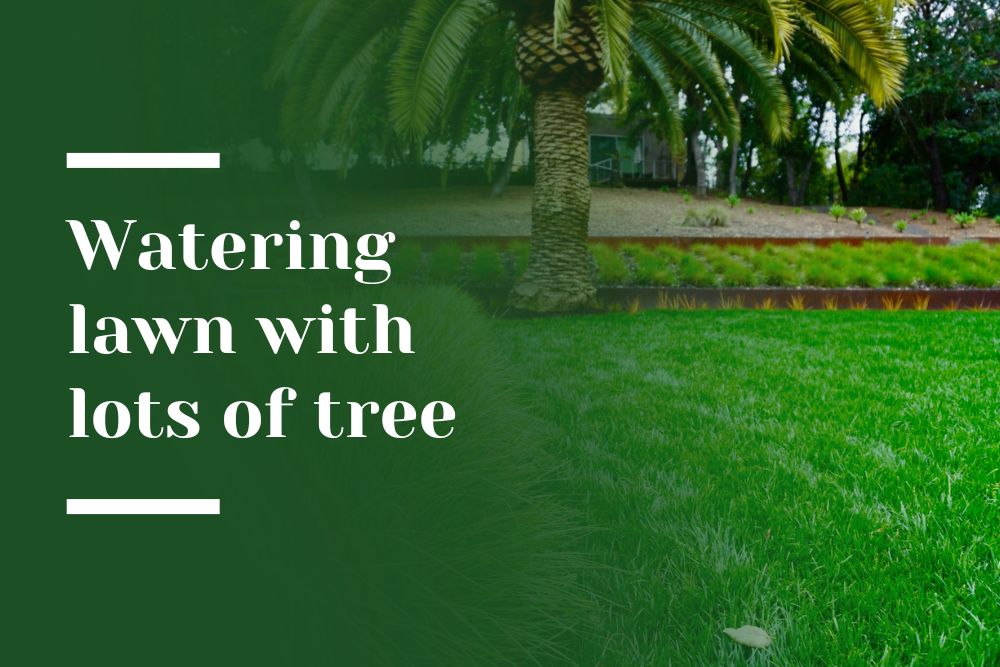Why Tree and Lawn Balance Matters in High-End Landscapes
When it comes to luxury landscaping in Woodside, your estate lawn and trees should work together, not compete. Yet many homeowners don’t realize that even well-intentioned plantings can create silent stress beneath the surface. Trees and lawns share resources like water, nutrients, and sunlight. And when not planned properly, one can outcompete the other—leading to patchy grass, thirsty roots, and higher maintenance costs.
As professional landscape designers in Woodside, we help clients strike the right balance between lawn health and tree vitality. This article explores how tree placement, irrigation, and sunlight affect your lawn’s water needs—plus what to do about it.
Tree Roots vs. Lawn Roots: Who Wins the Water War?
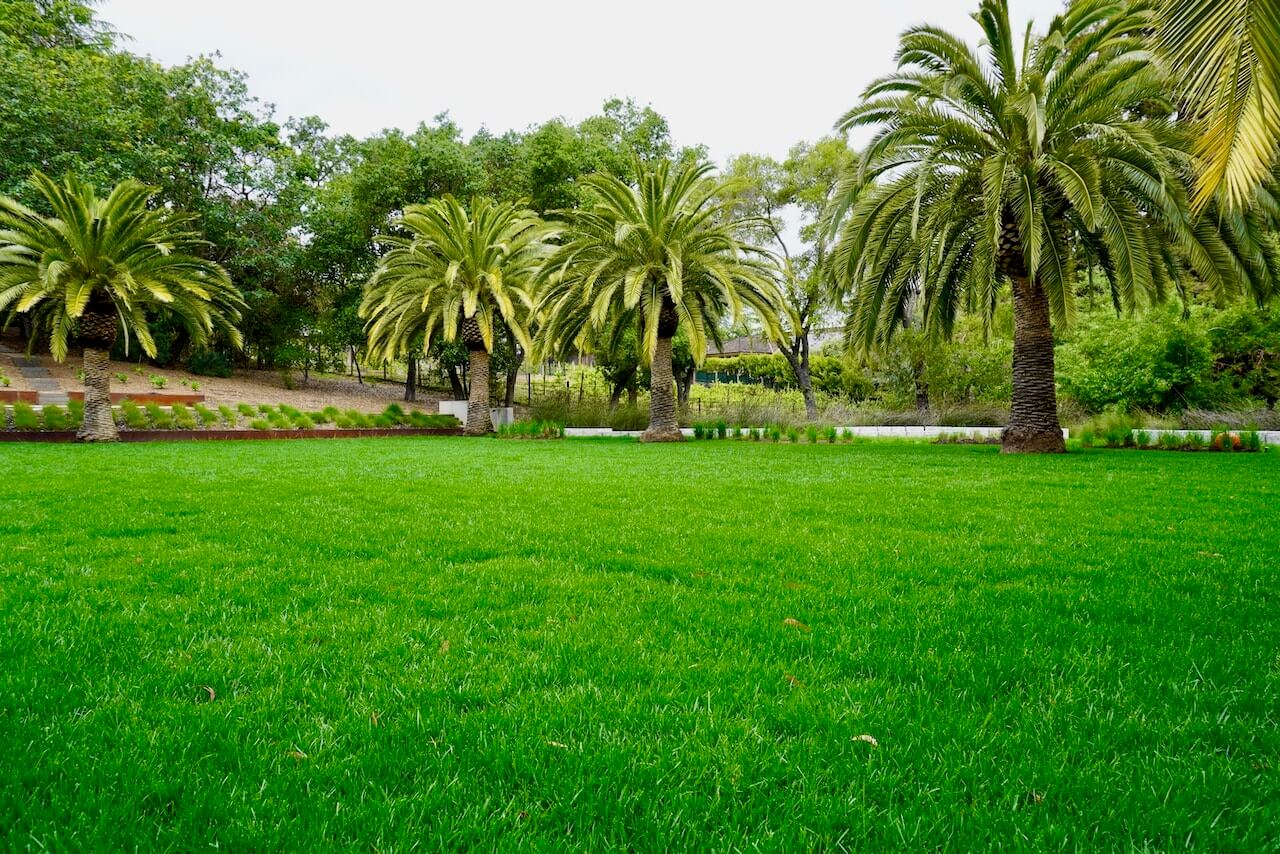
Understanding Root Depth
Lawn roots are generally shallow, growing 1 to 2 feet deep. Tree roots, on the other hand, spread much wider and deeper—especially species like palm trees or eucalyptus, which are notorious for drawing up large amounts of water.
Root Competition Can Happen
If your soil is compacted or your irrigation is shallow, tree roots may creep into turf zones to grab water. While most trees and lawns can coexist, certain tree types can outcompete turfgrass and create dry, stressed lawns.
Tip: If you’re considering a new lawn installation in Woodside, choose turf types that tolerate some root-zone competition.
How Tree Shade Changes Lawn Water Needs
Shade plays a key role in determining how often your lawn needs water. Less direct sunlight means slower evaporation, which generally reduces water needs.
The Double-Edged Sword of Shade
While shade may cool the lawn and reduce evaporation, it also reduces turf vigor. Lawns that receive less than 4 hours of direct sunlight per day often struggle with thinning, mold, or moss growth.
Pro Tip: In heavy shade, consider replacing turf with native groundcover or shade-tolerant lawn varieties to maintain a polished look without extra water.
Separate Irrigation Zones for Trees and Lawns
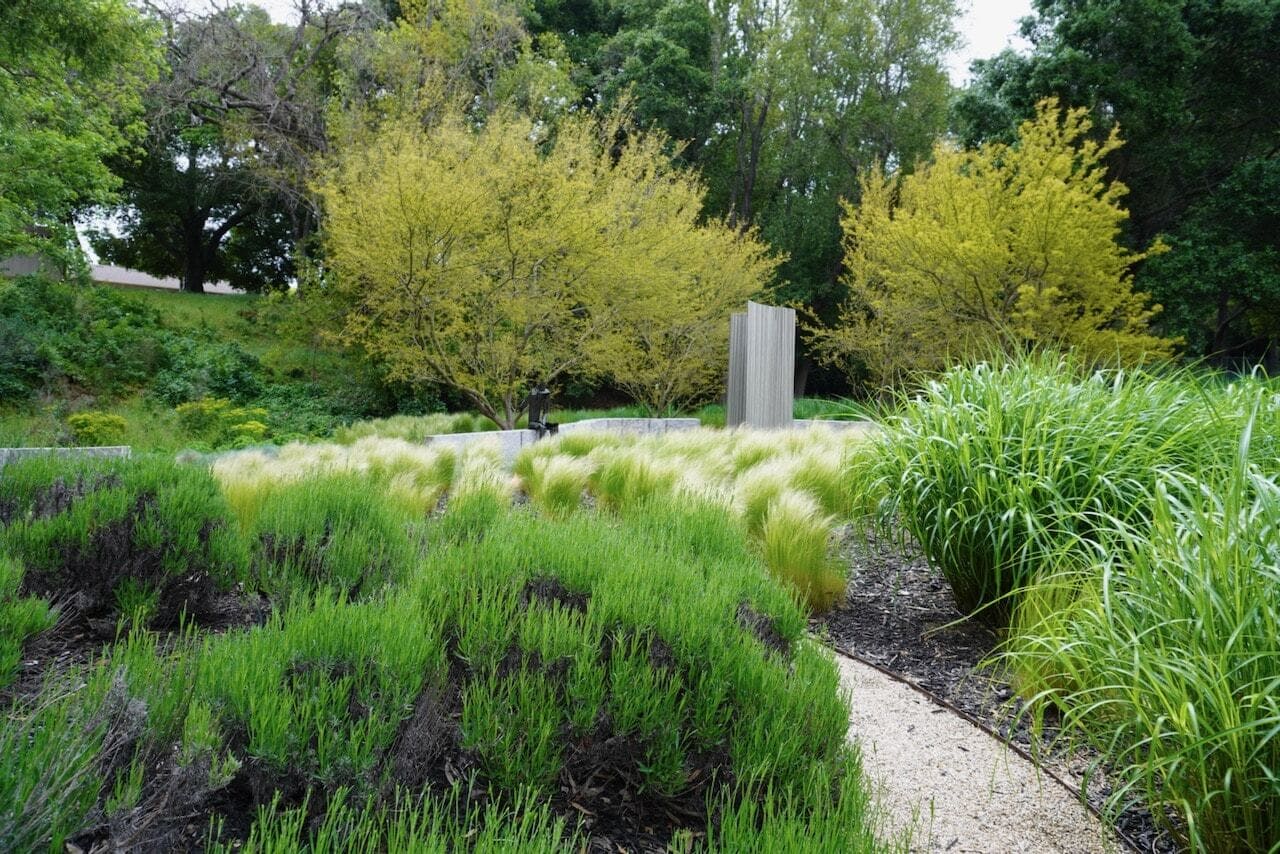
Why Irrigation Design Matters
Lawns require frequent shallow watering, while trees thrive on deeper, less frequent watering. Using the same irrigation schedule for both leads to problems: overwatering trees or underwatering lawns.
Drip vs. Spray
Use drip irrigation for trees and spray irrigation for lawns. Keep tree trunks dry; constant spray can cause rot, disease, or pest infestations.
Smart Irrigation = Smarter Water Use
We recommend smart irrigation systems with zone-based controls and soil moisture sensors to optimize water usage and reduce waste.
Tree Placement Tips from Woodside Landscape Designers
1. Plan for Mature Size
Small trees grow fast. Don’t plant shade trees too close to lawn zones where they’ll eventually block out light.
2. Choose Compatible Trees
Some trees, like redwoods or pines, are better suited to dry, deep watering. Avoid high-water trees like palms near turf areas.
3. Use Groundcover Under Dense Canopies
If trees already shade large areas, consider swapping lawn for shade-tolerant groundcovers or mulch rings to reduce competition and maintain luxury appeal.
Signs Trees Are Affecting Your Lawn
Grass is patchy or thin under trees
Increased weeds or moss in shady spots
Mushrooms or signs of overwatering near tree bases
Soil feels compacted near tree roots
If you notice these signs, it may be time to adjust your irrigation or redesign that section of your yard.
Expert Takeaways: Creating Harmony Between Trees and Turf
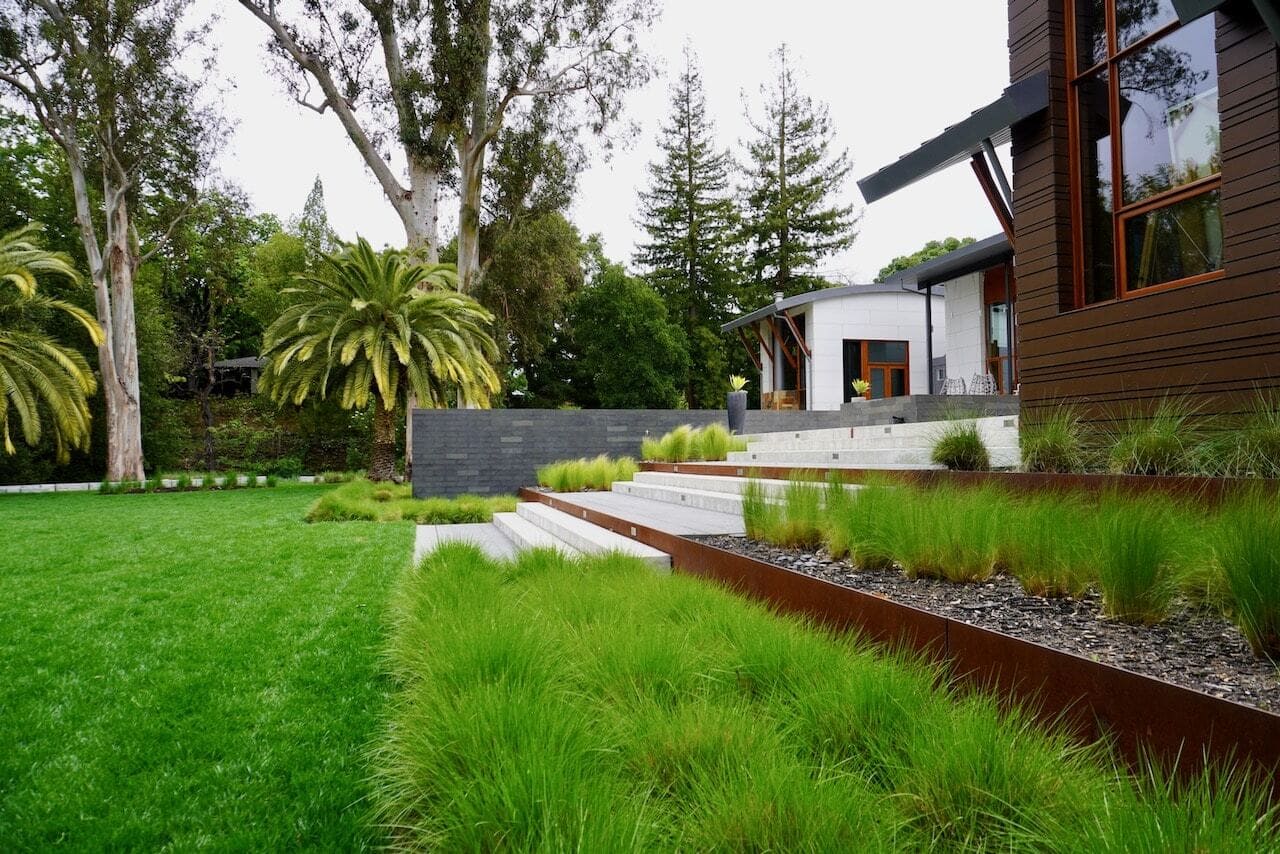
Separate Irrigation Zones: Trees and lawns need different watering routines.
Monitor Shade Over Time: As trees grow, your lawn’s sun exposure changes. Reassess every season.
Mulch and Amend Soil: Organic mulch helps retain moisture without encouraging turf overgrowth near trunks.
Hire a Landscape Designer: Every yard in Woodside is different. Work with professionals who understand local soils, shade patterns, and tree species.
Smart Planning = Water-Smart Landscapes
In Woodside, your trees and your lawn don’t have to be at odds. With smart irrigation, thoughtful plant selection, and professional design, you can enjoy lush green lawns and healthy mature trees—without wasting water or sacrificing curb appeal.
Need help optimizing your estate landscape? Our team of expert designers and horticulturists is here to help you build and maintain a water-wise, luxury landscape.
